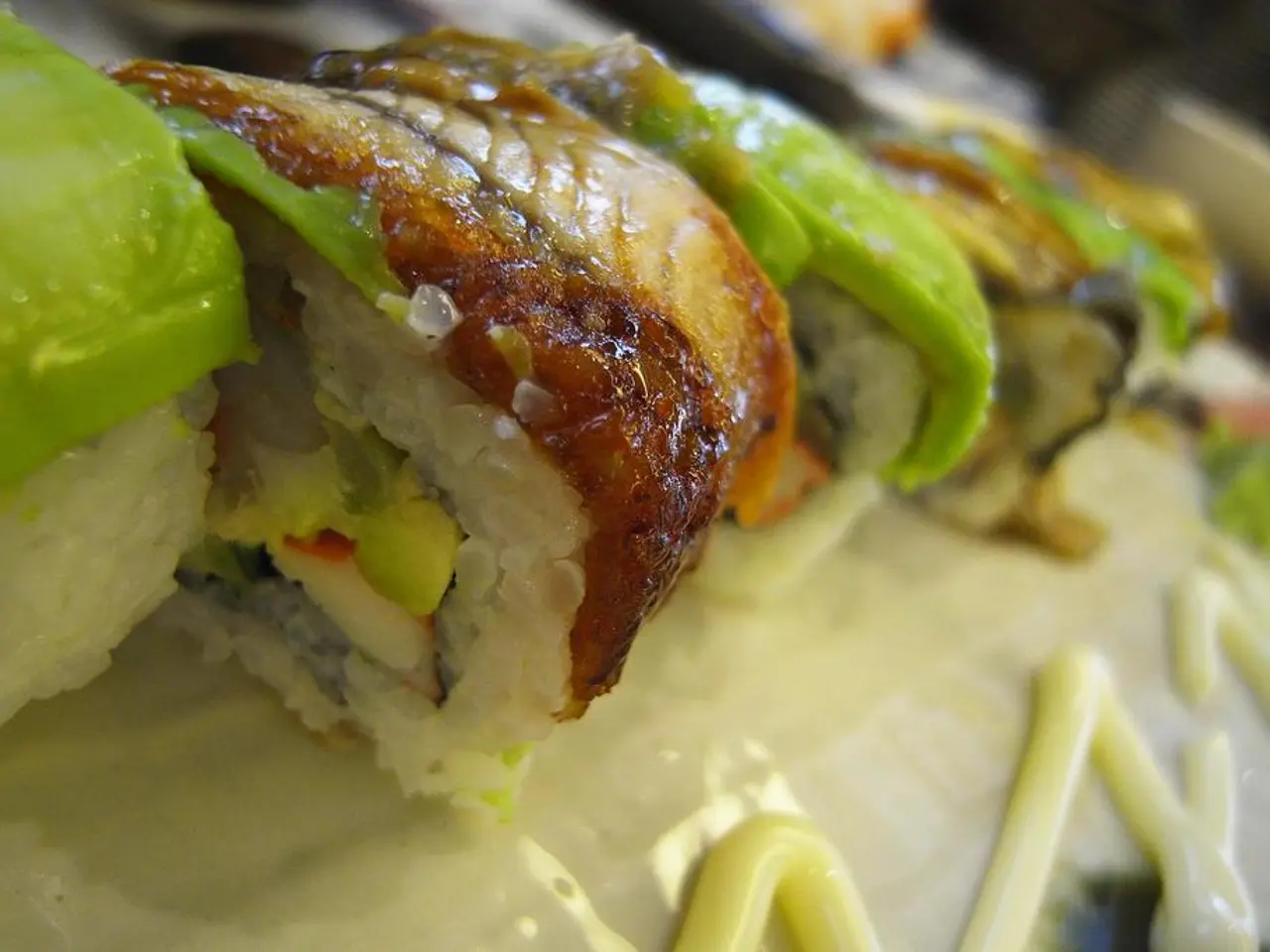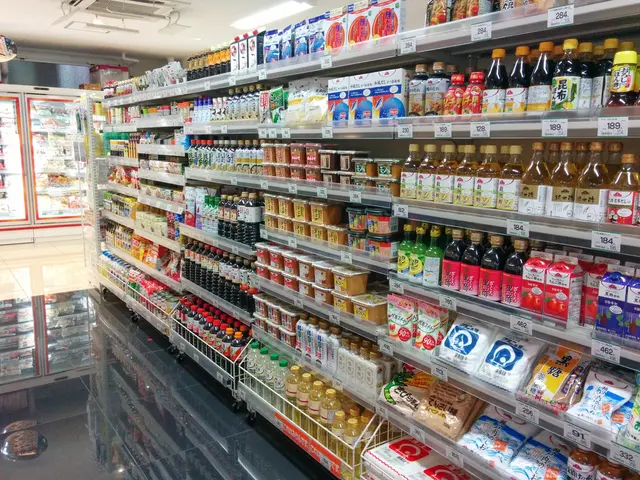South Africa prioritizes strategic trading relations with Turkey, a move in reaction to U.S. tariffs.
In the evolving landscape of global trade, South Africa has been strategically enhancing its relations with Turkey, positioning the Middle Eastern nation as a priority market to diversify trade partnerships and boost industrialisation [1][2]. This shift comes in response to the 30% U.S. tariffs imposed on South African exports, effective from August 8, 2025.
The South African Ministry of International Relations and Cooperation has labelled Turkey as a target partner alongside ASEAN countries, aiming to mitigate the impact of U.S. tariffs and create new opportunities for trade and industrial collaboration [1]. High-level discussions are ongoing, with a focus on agreements centred around value-added goods, rather than extractive trade, to build mutually beneficial industrial ties.
This repositioning is evident in the South African defence sector companies' active participation at Turkey’s International Defence Industry Fair (IDEF 2025) in Istanbul. The goal is to establish export markets, foster partnerships with Turkish government and industry, and expand bilateral cooperation in the defence industry [3][5].
The U.S. tariff increase has significantly reduced South African exports to the U.S., particularly in sectors like autos. This has prompted South Africa to urgently seek alternative markets to safeguard jobs and economic stability. Turkey, with its high-growth and dynamic economy, fits perfectly into this diversification strategy.
As of 2025, South Africa continues to hold its position as the G20 presidency holder and a member of BRICS nations. It also maintains a strong economic standing, with eight of Africa's 10 largest companies based in South Africa and trading on the Johannesburg Stock Exchange (JSE), which boasts a total market value of $1.3 trillion, larger than all other African exchanges combined [6].
South Africa, as the continent's trade centre, is known for its rich minerals, developed financial infrastructure, and strong industry. This strategic shift towards Turkey presents an opportunity to develop new partnerships in previously underutilized markets.
In 2024, the bilateral trade volume between Turkey and South Africa reached approximately $2 billion, with Turkey exporting around $700 million and importing $1.3 billion from South Africa. Turkey also has approximately $100 million in investments in South Africa, primarily in the mining and textile sectors [7].
Despite these developments, the new tariff regime could have a direct impact on the South African economy. However, the South African government's comprehensive strategy to develop relationships with alternative trade partners seems to be paying off, with South Africa's gross domestic product exceeding $410 billion in 2025, making it Africa's largest economy according to International Monetary Fund data [8].
In conclusion, South Africa-Turkey trade relations are strengthening through targeted government strategies, industrial exhibitions, and diplomatic engagement. The emphasis is on shifting South Africa’s export portfolio towards value-added products and industrial collaboration rather than primary commodity exports [1][3][5]. South Africa's strategic positioning of Turkey as a priority market is a significant step towards economic resilience and growth in the face of external trade challenges.
References:
[1] Business Day. (2025). South Africa eyes Turkey as strategic trade partner. [online] Available at: https://www.businesslive.co.za/bd/economy/2025-09-01-south-africa-eyes-turkey-as-strategic-trade-partner/
[2] The South African. (2025). South Africa shifts focus to Turkey as trade partner amid US tariffs. [online] Available at: https://www.thesouthafrican.com/news/south-africa-shifts-focus-to-turkey-as-trade-partner-amid-us-tariffs/
[3] DefenceWeb. (2025). South African defence sector companies at IDEF 2025. [online] Available at: https://www.defenceweb.co.za/security-news/south-african-defence-sector-companies-at-idef-2025/
[4] Fin24. (2025). South Africa's auto sector hit hard by US tariffs. [online] Available at: https://www.fin24.com/Economy/south-africas-auto-sector-hit-hard-by-us-tariffs-20250902
[5] Defence Aerospace. (2025). South Africa's defence sector at IDEF 2025. [online] Available at: https://www.defence-aerospace.com/articles-view/release/55439-south-africas-defence-sector-at-idef-2025/
[6] Bloomberg. (2025). South Africa's JSE is Africa's largest stock exchange. [online] Available at: https://www.bloomberg.com/news/articles/2025-09-01/south-africa-s-jse-is-africa-s-largest-stock-exchange
[7] Tralac. (2025). Turkey-South Africa trade relations. [online] Available at: https://www.tralac.org/resources/publications/turkey-south-africa-trade-relations/
[8] International Monetary Fund. (2025). World Economic Outlook Database. [online] Available at: https://www.imf.org/external/pubs/ft/weo/2025/02/weodata/index.aspx
- The South African government, in response to 30% U.S. tariffs on its exports, has targeted Turkey as a priority market to diversify trade partnerships and boost industrialization, positioning the Middle Eastern nation alongside ASEAN countries.
- The Turkish government and industry representatives are being actively courted by South African industry and defense sector companies, with a focus on value-added goods and industrial collaboration to build mutually beneficial ties.
- South Africa's aggressive trade strategy with Turkey is evident in the participation of its defense sector companies at Turkey’s International Defence Industry Fair (IDEF 2025) in Istanbul, aiming to establish export markets and expand bilateral cooperation.
- In the ever-evolving landscape of global trade, Turkey, with its high-growth and dynamic economy, fits perfectly into South Africa's diversification strategy as it urgently seeks alternative markets to safeguard jobs and economic stability.
- As a G20 presidency holder and a member of BRICS nations, South Africa continues to hold a strong economic standing with a large market value on the Johannesburg Stock Exchange (JSE). The strategic shift towards Turkey presents an opportunity to develop new partnerships in previously underutilized markets.
- The new tariff regime could have a direct impact on the South African economy, but the South African government's comprehensive strategy to develop relationships with alternative trade partners is proving to be fruitful, as South Africa maintains its title as Africa's largest economy with a gross domestic product exceeding $410 billion in 2025, according to International Monetary Fund data.





